Publishing Overview
These slides are from a series of workshops for young writers and present a rough and very broad overview of things to think about and possible next steps for emerging authors.

This might seem obvious (and it applies to all of publishing, not just short fiction), but it���s actually very important to really dig into what matters to you.
Are you building a long-term career? Do you dream of publishing full time? Do you care more about money or creative freedom or acclaim? Is it really more about getting your stories or ideas out to the world? Do you crave feedback? Is writing really a private pursuit that brings joy to you but that you don���t want the eyes (and opinions) of the world on? Is publishing a path to something else���recognition, acclaim, support for a different eductational or career trajectory?
Your answers may surprise you and/or change over time���which is fine! We all do the best we can and move forward as best we can, making mistakes along the way. But if you can clarify your goals (and dreams and hopes and . . . ) it���ll help you think critically about the information available and choose the most promising path for your needs.
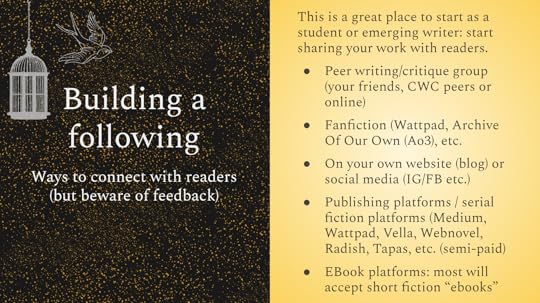
This is vital: if you want to get your work out into the world, that means working with others.
Young writers and newcomers may be used to a more critical perspective on ���literature��� (damage from high school/college lit classes, no doubt), or channel their insecurities into aggression, or simply lack the experience to recognize just what (and to what extent) they don���t yet know.
Time for a change of focus: other writers are now your peers. Not long-dead entities to be picked apart in analysis and critique. Not competitors (even when they are). Not faceless corporations. Real people who you may bump into from time to time, friends, colleagues, possibly even someone who will one day be in a position to help or hurt your career. Proceed accordingly.
Try to adjust your perspective on other emerging writers and readers as well; they���re now potential friends, colleagues, and fans. Be kind. Be helpful. Be professional. Don���t be scared.
You���ll need people who are on your side (or at least willing to lend a hand temporarily) at nearly every step of your writing journey. People who���ll share tips, give feedback (if you ask for it), buy books, write reviews, shout about your books to other readers.
If you intend to publish a book or otherwise care about getting your words out to readers, it���s never too early to start. Nothing published to share yet? Build platforms (website/social media, etc.) around shouting about books you like, ideally ones that are similar to what you hope to write. By the time you���re ready to search for readers, you���ll have contacts who you can share the news with!
And consider starting with something smaller and less resource intensive than a book, especially if you���re a student. Short stories, fanfiction, and serial fiction are a few ways to get your words in front of readers with less pressure. Bite-sized content is a growing market and it���s more doable for you, especially if you���re balancing creating with a busy school or work schedule.
See other posts in the Resources section for links to short fiction and serial fiction markets.
At time of writing, Wattpad and Archive Of Our Own (AO3) are the biggest fanfiction platforms. Use filters to keep content kid-friendly if you���re underage or simply uninterested in the thriving adult content sections. ;)
Quick aside: ALWAYS read the contracts before sharing your work and make sure your rights are protected. More on that in a bit.
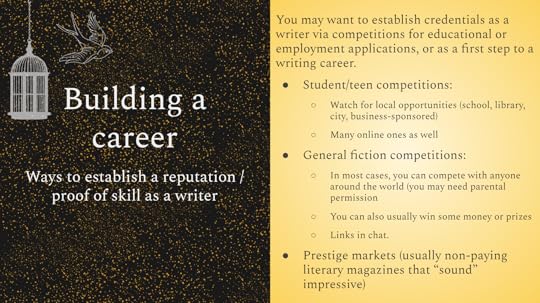
This section was originally intended for students, but writers of all ages can get into sharing their words for reputational purposes.
Students may find it helpful in scholarship, college, or job applications. Adults may simply want the prestige, or use it as a (small) building block to a writing career.
Awards and accolades don���t sell lots of books. They can be useful in building a ���brand��� as a writer; however, and may lead to more opportunities or visibility over time.
Larger scale or higher profile awards or story markets can be more beneficial, but the competition will be higher. That���s not to say don���t enter���always take your shot! But local/regional and student-specific competitions/markets will be relatively easier to make a splash in. Also note that certain topics or styles will play better with some judging panels or editors/magazines than others. The closer you match their preferences, the more likely you are to get a ���yes��� and that has nothing to do with skill or quality. (Don���t get discouraged!)
While publishing as a teen may sound promising, it tends to be less of a selling point than you might think. Unless you���re entering a student competition or otherwise required to disclose such details, avoid mentioning your age/grade.
See other posts in the Resources section for links to competition and short fiction markets. ALWAYS read contracts and follow posted guidelines.
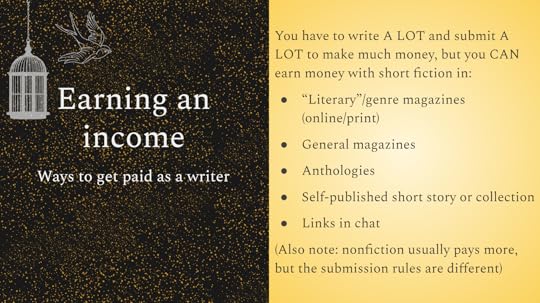
###
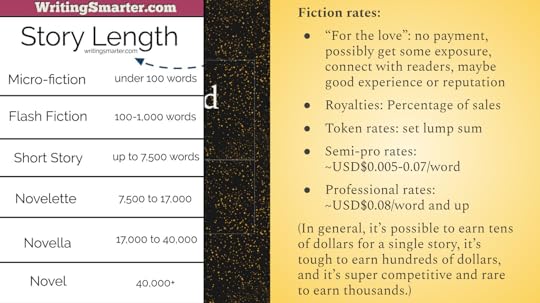
###
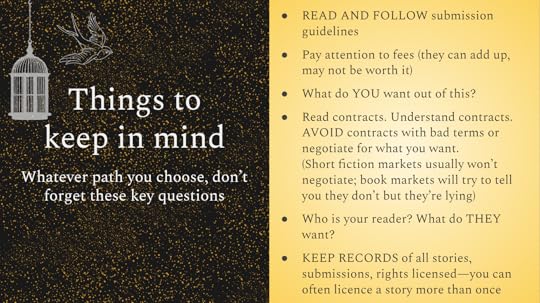
###
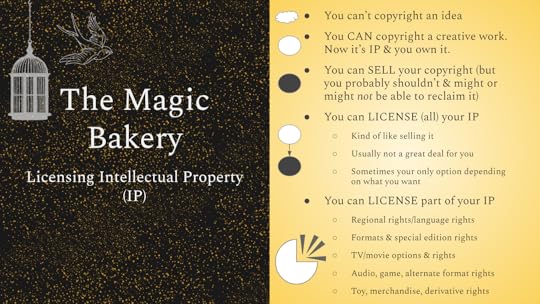
###
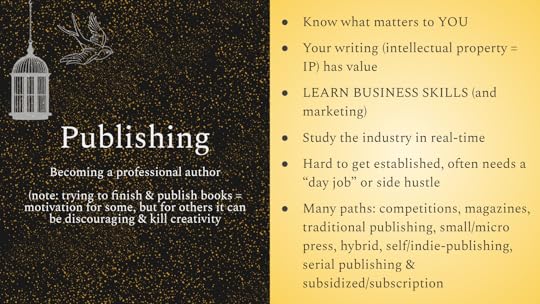
###

###

###
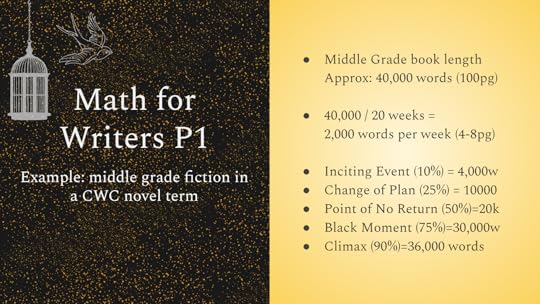
###
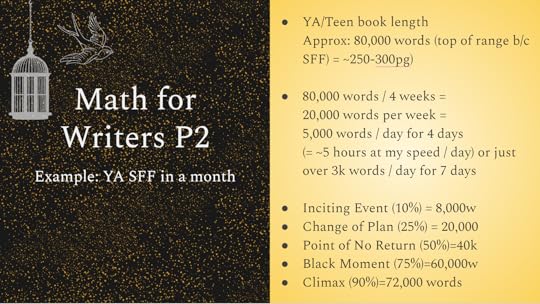
###

###

###

###
[image error]
###
[image error]
###
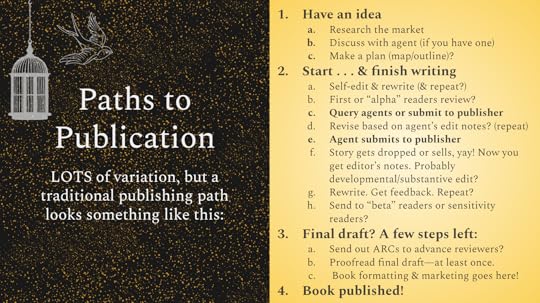
###

###
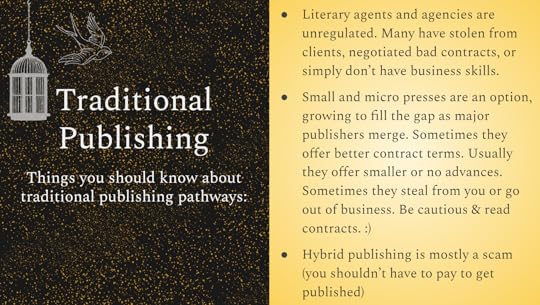
###
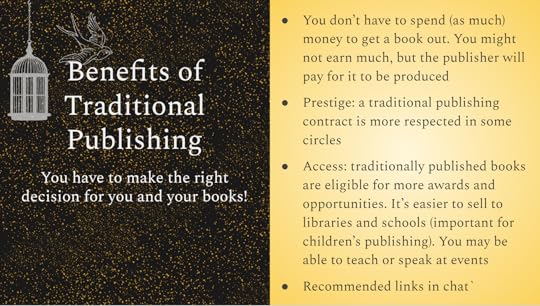
###
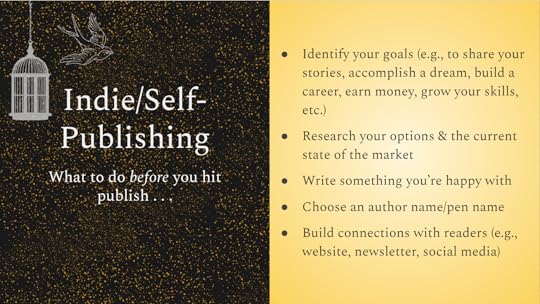
###
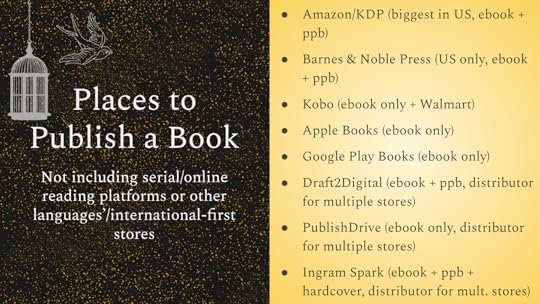
###
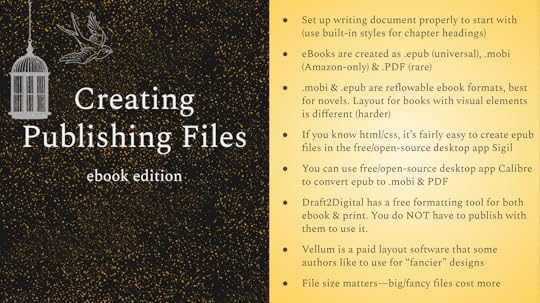
###
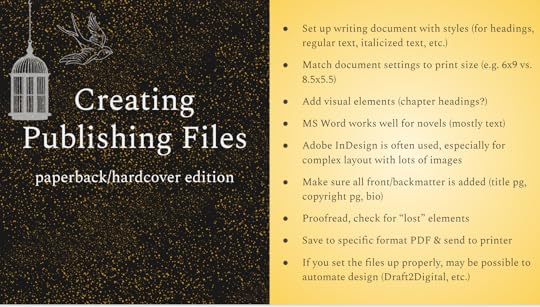
###

###
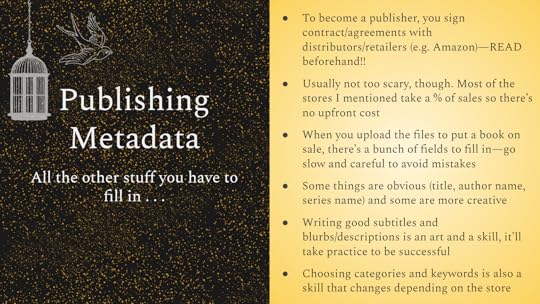
###



